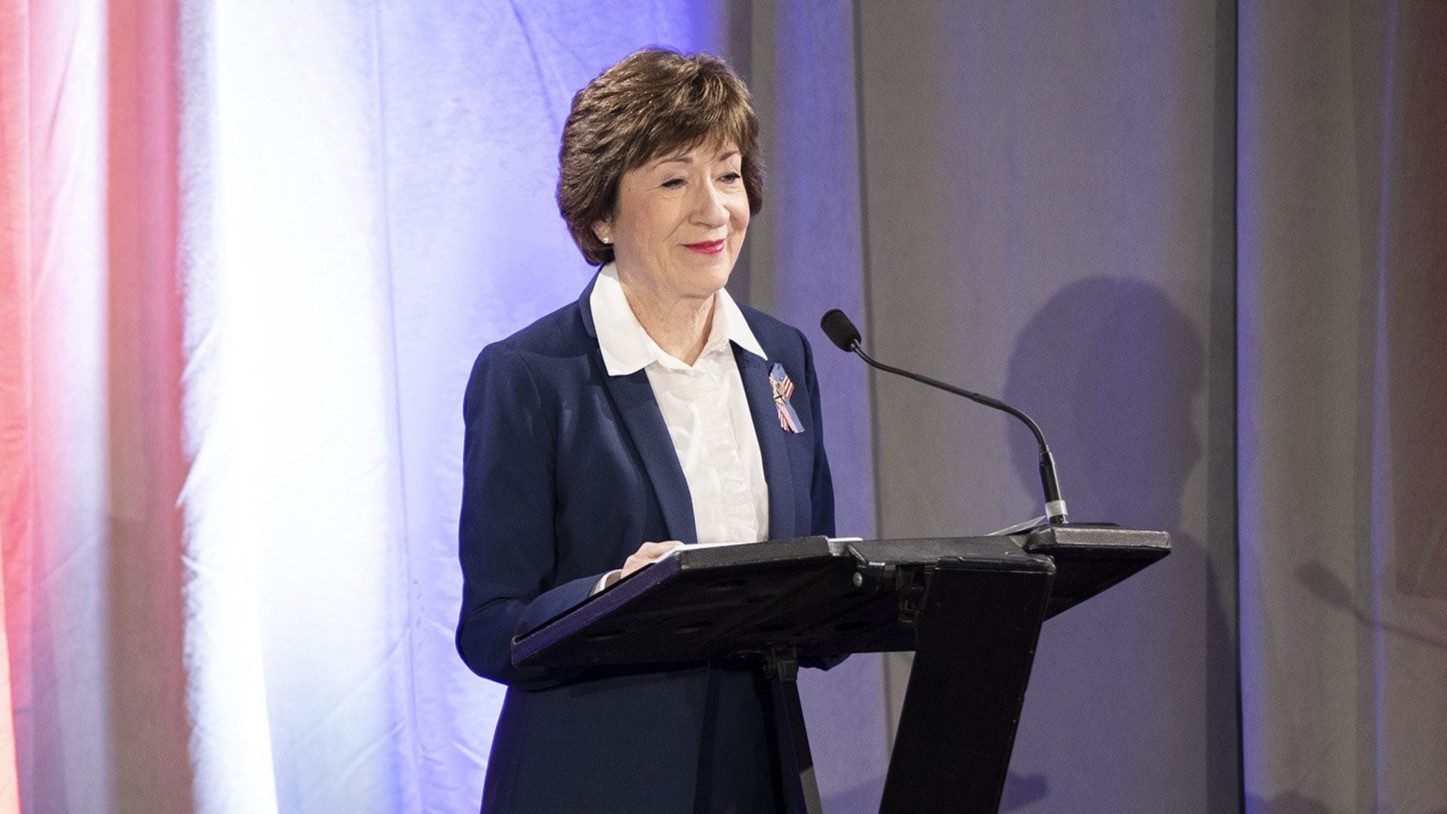Maine news media announced last week that Susan Collins ranks as the “least popular” of all 100 members of the U.S. Senate.
That sounds like bad news about her chances for re-election this year. But there’s good reason to dig deeper into that report.
The results came from a survey of an average of 27 to 30 Maine voters each day during the last three months of 2019. A major problem with this poll, like many others, is that many people often refuse to participate, which could somewhat undermine the result. The reader has no way of knowing just how good any poll may be.
The survey does not really ask about popularity. Instead, it asks voters if they “approve” or “disapprove” of a senator’s “job performance.”
The most popular senator, Vermont Democrat Bernie Sanders, has the highest approval rating. With 52 percent disapproval, Collins has the highest disapproval rating in her own state. Only 6 percent is undecided, seeming to make her 42 percent favorable vote reasonably secure.
Her favorable rating ties her or places her ahead of a surprising 25 other senators’ favorable scores. That means Collins has a favorable rating equal to or greater than one-quarter of the U.S. Senate. She may be the most unpopular, but that’s not the only message. She retains a good deal of popularity.
There’s another question raised by the data. There are 25 women in the U.S. Senate. Among the top 10 in popularity, there is only one woman. But among the 10 least popular, six are women.
While it seems unlikely to be the case in Maine, which has a tradition of electing women to the Senate and House, the imbalance in the ratings may reflect something more than simply a job performance rating.
Focusing on the least popular senators, right behind Collins comes Mitch McConnell of Kentucky, the GOP Senate leader. In third place is Lisa Murkowski of Alaska, sometimes linked with Collins as a moderate in taking issue with McConnell.
With 50 percent disapproval, McConnell may be vulnerable to a credible re-election challenge in his normally solidly Republican state. GOP concern could run even further. Of the 10 least popular senators, seven are Republicans. Among the most popular, the Democrats lead by 6-4.
Collins has run into the possibility of losing support from independents and Democrats, while also seeing the GOP turn to the right, away from her more traditional positions. But McConnell runs in a strongly pro-Trump state, having been the most loyal soldier imaginable in support of the president.
This Morning Consult rating may reveal an emerging trend, so it will be worth watching carefully what happens when the next survey is published three months from now.
It is likely that the next survey will reveal the effect of senators’ votes in the trial of the president on public impressions of how well they are doing their jobs.
If the trend continues for Collins and intervening votes do not change it, she will have to seek ways to quickly improve her standing. In the meantime, she may not want to be too closely tied to the controversial McConnell, who may have his own problems.
The importance of this survey is not the cold numbers, but the temper of the voters that it reveals. It has certainly focused attention on Collins’ challenge.
The survey also covered Sen. Angus King. It reported he had a 58 percent favorable rating, ranking him fifth in the Senate. The wide difference between him and Collins among Maine voters sheds some light on the seriousness of her problems.
The survey also ranked governors. Gov. Janet Mills was the seventh most unpopular governor with a 45 percent unfavorable rating. Her positive rating was 47 percent.
Four of the bottom 10 governors are women, but only one of the top 10 is female. There are nine women governors in the 50 states.
Finally, the survey looks at President Trump’s popularity by state. His outlook is somber, including in the key swing states he carried in 2016. If the Democratic nominee carried all the states where Trump has a net unfavorable rating, she or he would win easily. But Maine is reasonably close, 46 percent favorable to 52 percent unfavorable.







